It was snowing heavily when I flew out of Ghana for the final time 6 months ago. I trekked across London in the only sweater I had with me, then laying shivering under the duvet wondering what I had let myself in for. I was also lying shivering in suboptimal temperatures earlier this month, in a tent in the middle of a field on the Danish/German border, and pondering over what I’d learnt in the intervening period, in my new job working on humanitarian response.
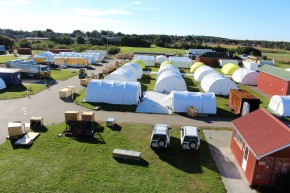
When I joined DFID 3 years ago my first role was working in the UN and Commonwealth Department, getting to know my UNICEFs from my UNIDOs, spotting a high admin/programme ratio from a mile off and getting down on the finer details of the difference between UN Security Resolutions 1325 and 1820 (as well as surviving Glasgow’s deep fried delights). Ghana was a whole other world of development speak. By the end, I could wax lyrical on the merits of complementary basic education or of insecticide treated mosquito nets, and as the election approached I learnt to tell my CPP from the PPP, and give you the % variance between the size of the voters roll and the population according to census data in each of the 10 regions. And since I’ve been back in London there’s been yet another world to grasp: humanitarian.
Which takes me back to shivering in a tent. A big team from DFID was braving the Nordic chill to take part in a massive international humanitarian disaster exercise: Triplex. The UN, the EU, Red Cross, NGOs and military were all there, more than 300 people in all, and we had to respond to the aftermath of a (fictional) category 3 hurricane, affecting almost a million people. The DFID team had driven over from the UK with all the kit we would need for a real deployment – tents, mobile shower units, generators, satellite internet, water filters
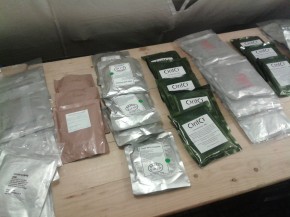
Base camp itself was a hub of organised chaos. Humanitarian workers from all around the world darting off in different directions, airwaves crackling with reports from the field, and giant tents functioning as office spaces and dormitories. Internet and phone coverage would periodically black out, showing us just how reliant we are on technology.

The team pulled together and we went through the processes of activating all the different tools the UK could deploy in a real emergency: the UK Search and Rescue team from the fire service, the UKMED rapid surgical/medical team (formed from NHS doctors and nurses), our stockpile of blankets and tents and other non-food items based in Dubai, and funding to NGOs through our Rapid Response Facility, or to the UN or Red Cross.
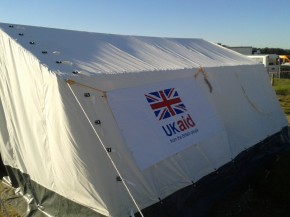
The exercise itself was a frantic 72 hours, fuelled on endless cups of tea and chocolate bars. The camp went on security lockdown as imagined angry protesters gathered outside the gates, colleagues were kidnapped, and unsuspecting humanitarian advisers doorstepped by the press.
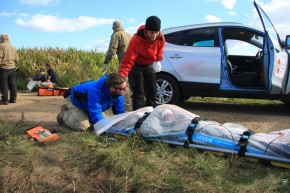
The exercise was fairly stressful. I had to notify the health and nutrition cluster lead who then needed to put together and disseminate advice on the dangers of giving powdered milk to babies, particularly in a situation following the hurricane where water was not safe to drink. I then had to discuss the issue with the logistics cluster lead who was concerned about the political implications of the national government refusing a donation. He was also worried that a plane that was not unloaded on the runway would block further deliveries of crucial aid. Through a miscommunication the milk was unloaded and stored in UNICEF and Medair’s warehouse, and rumours spread through the press that these organisations were blocking the delivery of crucial supplies – people affected by the hurricane started protesting vehemently, and the press back in the UK picked up the story.
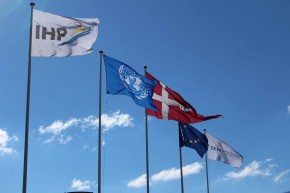
I thought about what this experience had in common with what I felt working with the UN and the Government in Ghana, and the importance and power of institutions has really struck me – working out how to leverage change, where the pressure points for influence are, understanding how systems move (or don’t). In the exercise (as there would be in a real emergency) there were many actors, each with their own rules, systems and agendas: national and local governments, donors, each of the individual UN agencies, press, medical and search and rescue teams. Clearly, the need to co-ordinate, to make sure people are not duplicating the same work or covering similar geographical regions is crucial and a hard enough task in itself, but it’s also critical to make sure you don’t get so caught up in negotiating the bureaucratic labyrinths of rules, processes and institutions that you lose sight of the bigger picture: the people you’re actually trying to help.

Recent Comments